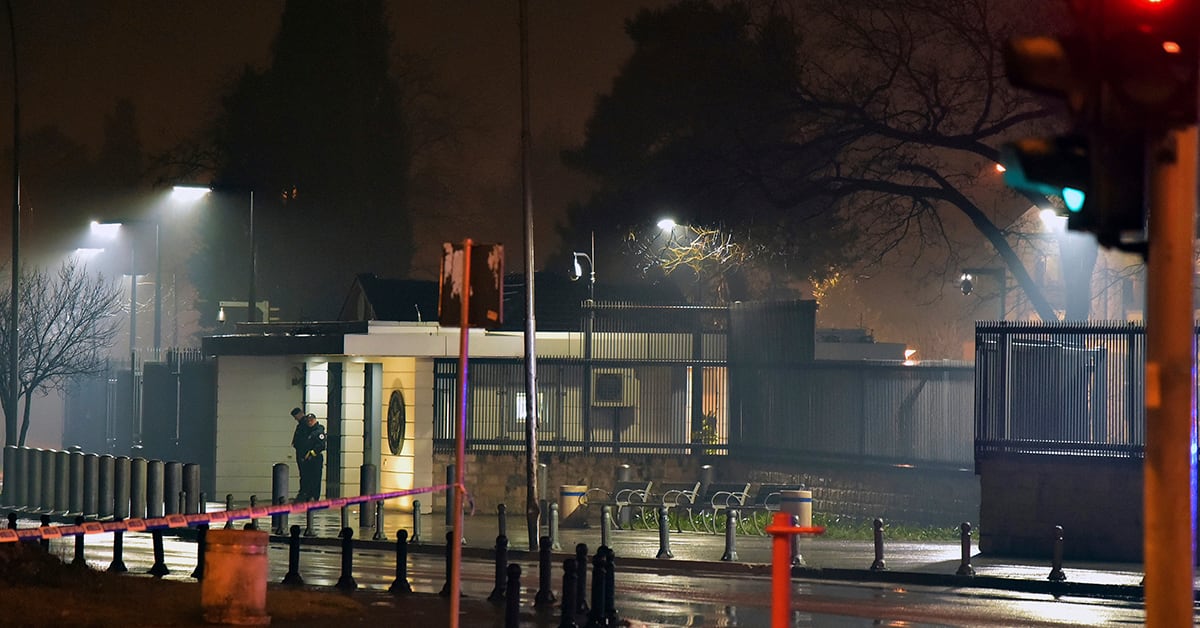PODGORICA, Montenegro — The man who hurled a bomb into the U.S. Embassy compound in Montenegro’s capital, and then killed himself, was an ex-soldier apparently decorated by former Serbian strongman Slobodan Milosevic after NATO’s bombing of Serbia and Montenegro in 1999, authorities said Thursday.
A police official, speaking on condition of anonymity because of the ongoing investigation, said the man was 43-year-old Dalibor Jaukovic, who was identified by a close relative.
At a news conference, police formally identified the suspect by his initials D.J., in line with what the police official said earlier. The man had no criminal record and the attack wasn’t an act of terrorism, police said.
Police added they were investigating his motives and whether he had acted alone. They said security was beefed up around all foreign embassies in Montenegro.

“Measures are being taken together with the FBI agents to check the social networks this individual has used,” senior police official Enis Bakovic said.
Photos posted on Jaukovic’s Facebook profile include a plaque honoring his contribution in the fight against NATO during the bombing. The plaque appears to be personally signed by Milosevic. In a Facebook post in May, Jaukovic said “no to NATO.”
Police said in a statement earlier that an assailant threw a bomb into the embassy yard and then killed himself by activating another one around midnight Wednesday.
The blast created a crater but caused no other material damage to the embassy property, the statement said. The embassy said Thursday all staff are safe and accounted for after the incident.
Police sealed off the area around the embassy after the explosion. Officers came to the scene after receiving reports about two explosions and found a lifeless male body in the area of the Moraca river that runs through Podgorica, the statement said.
Police said Jaukovic was a Montenegrin citizen born in neighboring Serbia.
Many in Montenegro remain opposed to the country’s NATO membership because of the air war the alliance waged to stop the war in Kosovo when Montenegro was still part of Yugoslavia.
Montenegro borders the Adriatic Sea in southeastern Europe. It joined NATO last year despite strong opposition from Russia, its traditional Slavic ally. Several people, including two Russian secret service operatives, are on trial in Podgorica on charges that they wanted to overthrow Montenegro’s government in 2016 because of its pro-Western policies.
The U.S. established diplomatic ties with the tiny Balkan state in 2006 after it split from much larger Serbia.
Associated Press writers Dusan Stojanovic and Jovana Gec in Belgrade, Serbia, and Josh Lederman in Washington, contributed to this report.




